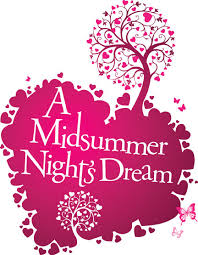There is no individual writer who has wielded greater influence than Shakespeare over the English language. He constantly satirized linguistic and stylistic fashions among his contemporaries and experimented with all kinds of innovations, dialectical adaptations and archaisms which enriched the English language. Shakespeare’s influence on language is indeed deep rooted.
Shakespeare’s Influence on Literature
Shakespeare’s importance lies in his usage of the English language to individualize the characters in his plays. In this context, Shylock deserves special mention as Shakespeare’s most interesting creation for his language was different from that of anybody else’s. He had his Old Testament at his finger’s end and used biblical words which were found nowhere else like synagogue, Nazarite, publican and so on.
Shakespeare enriched the English language by breathing into it a lot of striking metaphors, new phrases and a host of new words which he coined. The metaphors which Shakespeare employed were out of the ordinary: “He cannot buckle his distempered cause with the belt of rule.” This magnificent metaphor of a dropsical body from Macbeth has been used to shed light upon the disorganized state of Macbeth’s party. He introduced a number of phrases which have entered into our daily conversation like- ‘Pink of courtesy’, ‘hoist with his own petard’ and more.
Shakespeare introduced a number of words in the English vocabulary such as assassination, incardine, dwindle, enthrone and so on. He even tried to suggest local color through usage of provincial words such as ‘pheeze’ in ‘Taming of the Shrew’ and ‘blood bolter’d’ in Macbeth. He formed a lot of new words by adding prefixes ‘en’ (or ‘em’) and ‘un’ such as endeared, enkindle, empoison, unexpressive, unkiss. He made new effective poetic compound adjectives like ‘daring-hardy’, ‘happy-valiant’ and fashioned nouns from verbs such as ‘fathere’d’, ‘spaniel’d’ and so on.
Shakespeare wrote on a variety of subjects and touched upon a number of human facts and relations which enabled him to create a vocabulary that is believed to comprise about 21000 words. Owing to his innovations and inclusions, he is now looked upon as one of the greatest individual contributors to the English language.
Shakespeare Influence on Language
There is no individual writer who has wielded greater influence than Shakespeare over the English language. He constantly satirized linguistic and stylistic fashions among his contemporaries and experimented with all kinds of innovations, dialectical adaptations and archaisms which enriched the English language.
The most characteristic feature of Shakespeare’s use of English language is his boldness which can be observed in his usage of striking metaphors, phrases and words and coinage of a host of new words.
The metaphors which Shakespeare employed were out of the ordinary: “He cannot buckle his distempered cause with the belt of rule.” This magnificent metaphor of a dropsical body from Macbeth has been used to shed light upon the disorganized state of Macbeth’s party.
Shakespeare introduced a lot of phrases which comes across as striking and bold to the readers such as ‘To feed fat the ancient grudge’ from The Merchant of Venice, ‘To give everyman one’s ears’ from Hamlet, The be-all and the end-all’ from Macbeth and more. Some phrases like have entered into our conversation ‘To cudgel one’s brain’ (Hamlet) and ‘foregone conclusion’ (Othello) have undergone a change in meaning and usage now.
Shakespeare’s boldness can also be perceived in the many new words that he coined such as assassination, incardine, dwindle, enthrone and many more. He formed a lot of new words by adding prefixes ‘en’ (or ‘em’) and ‘un’ such as endeared, enkindle, empoison, unexpressive, unkiss. He made new effective poetic compound adjectives like ‘daring-hardy’, ‘happy-valiant’ and fashioned nouns from verbs such as ‘fathere’d’, ‘spaniel’d’ and so on.
Shakespeare often did not care about grammatical parallelism which resulted in usages like ‘the whole ear of Denmark’ and ‘no mind of feasting forth’ which is also a sign of boldness.
It was by the virtue of its boldness, that Shakespeare’s language is perhaps the most enriched and iconoclastic.
Some online learning platforms provide certifications, while others are designed to simply grow your skills in your personal and professional life. Including Masterclass and Coursera, here are our recommendations for the best online learning platforms you can sign up for today.
The 7 Best Online Learning Platforms of 2022
- Best Overall: Coursera
- Best for Niche Topics: Udemy
- Best for Creative Fields: Skillshare
- Best for Celebrity Lessons: MasterClass
- Best for STEM: EdX
- Best for Career Building: Udacity
- Best for Data Learning: Pluralsight













